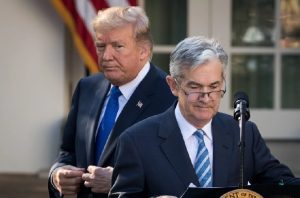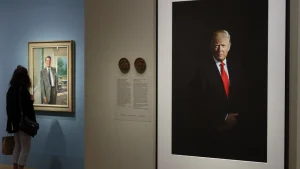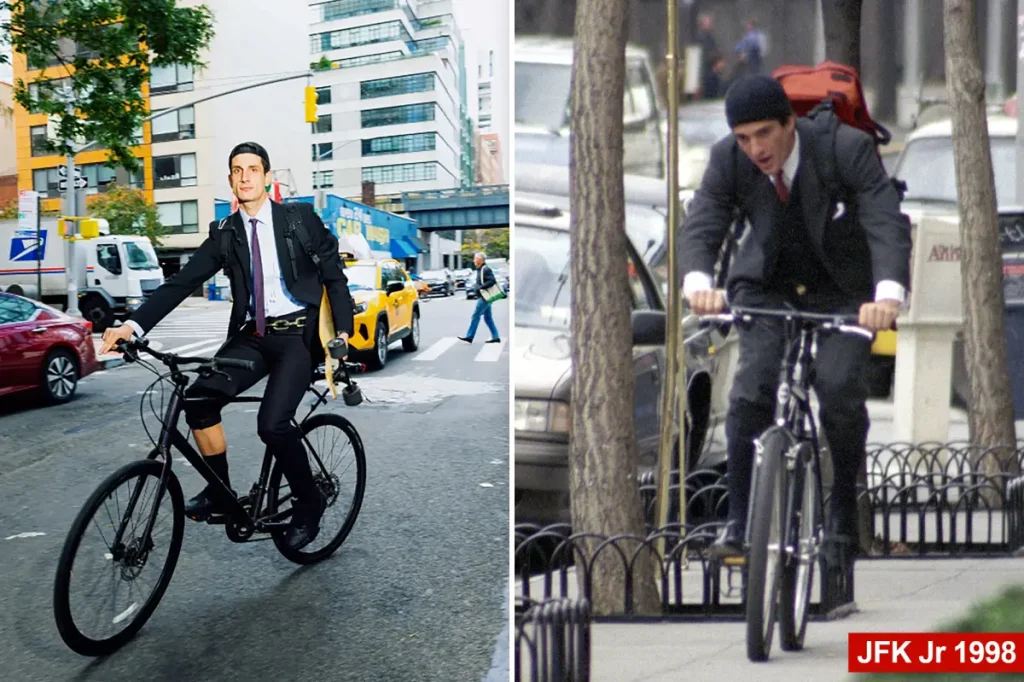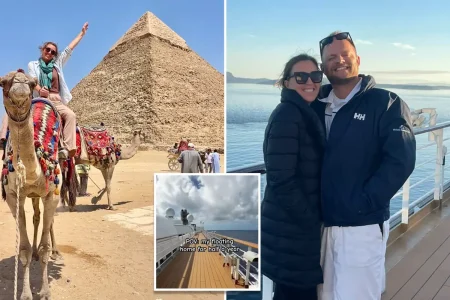Jack Schlossberg’s Congressional Bid: A Kennedy Legacy Reimagined
Jack Schlossberg, the 32-year-old son of Caroline Kennedy and grandson of President John F. Kennedy, has launched his campaign for New York City’s 12th congressional district, creating waves with imagery that strongly evokes his late uncle, John F. Kennedy Jr. His official campaign website features Schlossberg cycling through Manhattan streets in a dark suit with a backward cap and backpack—a visual homage to the iconic images of JFK Jr. who was frequently photographed biking through New York City in similar attire before his tragic death in a 1999 plane crash. The resemblance extends to specific details, including Schlossberg pushing up his right pant leg just as his uncle often did, suggesting a deliberate connection to the Kennedy legacy that has captivated Americans for generations.
Schlossberg announced his candidacy on Tuesday for the Manhattan seat being vacated by retiring Representative Jerrold Nadler, who has held the position for more than three decades. His campaign message emphasizes generational change and bold representation: “Each generation of Americans is tested. The 2026 midterms is our moment,” his website declares. “I’m running for Congress because the best part of the greatest city on earth needs to be heard loud and clear in Washington and deserves a representative who won’t back down.” This rhetoric positions him as a fresh voice while also tapping into the Kennedy family’s historical emphasis on public service and civic duty—themes that have resonated with American voters since his grandfather’s presidency in the early 1960s.
Over the past year, Schlossberg has built a substantial social media presence with 751,000 Instagram followers, posting content that sometimes mirrors iconic images of JFK Jr., including photos of himself kayaking shirtless. He has also used this platform to criticize his cousin Robert F. Kennedy Jr., who serves as Secretary of Health and Human Services, revealing family divisions that mirror broader political fractures in contemporary America. However, his approach has drawn criticism from some political analysts, including strategist Hank Sheinkopf, who called Schlossberg’s campaign strategy “completely idiotic” and described it as “a guy with no record, no accomplishments trying to make himself into something he’s not.” Sheinkopf’s criticism extends to the broader Kennedy family, suggesting they still expect political entitlement despite changing times.
Despite such criticism, Schlossberg brings educational credentials that align with Kennedy family traditions of elite education and public service. His full name—John Bouvier Kennedy Schlossberg—itself carries historical weight, and he graduated from both Harvard Law School and Harvard Business School in 2022, following educational paths similar to many in his famous family. At 32, he represents a new generation of Kennedy family members entering politics, though he faces questions about whether his family name and carefully crafted image will resonate with today’s voters who might prioritize experience and policy positions over political dynasty connections.
The congressional race for New York’s 12th district is already competitive, with several experienced candidates joining the Democratic primary. These include Alex Bores, a former software engineer who has served in the State Assembly since 2023; Micah Lasher, a state lawmaker and protégé of the retiring Nadler; and Liam Elkind, founder of the nonprofit Invisible Hands. Each brings their own credentials and experience to the race, challenging Schlossberg to demonstrate that he offers more than just his famous surname. The primary will test whether voters in this progressive Manhattan district are drawn to Schlossberg’s Kennedy mystique or prefer candidates with more established political records in local government and community service.
Schlossberg’s campaign slogan—”A New Generation of Leadership for New York”—appears to serve dual purposes: it connects him to his family’s political legacy while also attempting to position him within the current progressive movement gaining momentum in New York politics, particularly following Democratic Socialist Zohran Mamdani’s recent mayoral victory. This balancing act between honoring tradition and embracing change represents the central challenge of Schlossberg’s campaign—and perhaps the broader Kennedy family’s political future in an era when voters increasingly question hereditary political influence. Whether Jack Schlossberg can successfully transform visual resemblances to his uncle and family connections into a compelling political identity of his own remains the defining question of his congressional bid in a district accustomed to strong, independent representation.















